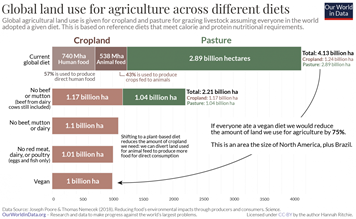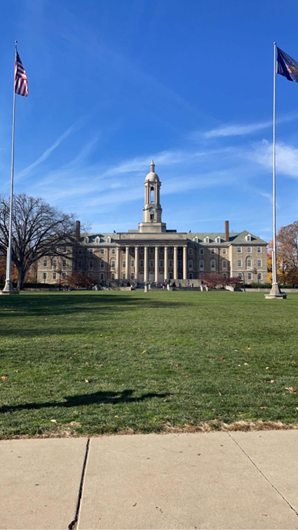How Does Your Diet Impact the Environment?
When taking the environment for consideration most people’s minds would immediately trace to the well-known phrase “reduce, reuse, and recycle,” and while cutting down on how much you throw away aides in protecting the earth, you can also reduce your carbon footprint just by changing your diet.
How would eating plant-based improve the environment? Some may argue it is hypocritical to say plant substitutes are better for the environment because they still emit tons of greenhouse gasses when harvesting them. While it is true harvesting plants contributes to greenhouse gas emissions, according to gfi.org, plant-based meats emit 30 to 90 percent fewer greenhouse gasses than conventional meat. As the population of the world continues to grow, it is imperative there is enough land as well as resources to sustainably maintain that population. Some may argue that substituting meat for crops such as beans, peas, tofu, etc., would require more cropland to grow, therefore making it less sustainable, however, this is not necessarily the case. If we were to base agricultural land on the amount of food everyone on the planet would need to survive, almost three-quarters of the land would be pasture and the remaining would be cropland. According to ourworldindata.org “if we combine pastures and cropland for animal feed, around 80 percent of all agricultural land is used for meat and dairy production.” If the world population did eat less meat and dairy this would result in indulging more in crops, which would provide the consequence of cropland increasing, however the land previously used for animal feed would shrink dramatically. In a hypothetical sense, if everyone in the world became vegan the total of agricultural land would downsize from 4.1 billion hectares to 1 billion hectares, which is a significant decrease considering we’re cutting down on 75 percent of agricultural land. Another thing to note is that a completely plant-based diet isn’t the only diet that can significantly reduce the amount of land we use for agriculture. Cutting out beef, dairy, and mutton and replacing it with either eggs, fish, chicken, or plant-based substitutes would free up the land used for pastures.
It is important to account that not everyone can vastly or entirely change their diets and this article isn’t about making you feel guilty about your meat and dairy consumption because we all contribute to climate change in different ways. Instead, let this encourage you to possibly switch the food you eat every once in a while. According to a Stanford University report, “if everyone in the U.S. ate no meat or cheese just one day a week it would have the same environmental impact as taking 7.6 million cars off the road.” If you think you could incorporate plant-based meals into your diet once a day, once a week, or even a couple of times in a month, you will be positively impacting the environment more than you think and you might discover some new foods along the way!
Caroline Montgomery, Grade 12. Interests/hobbies include choir, drama, volunteering, reading, and spending time with friends. Caroline plans to attend...










